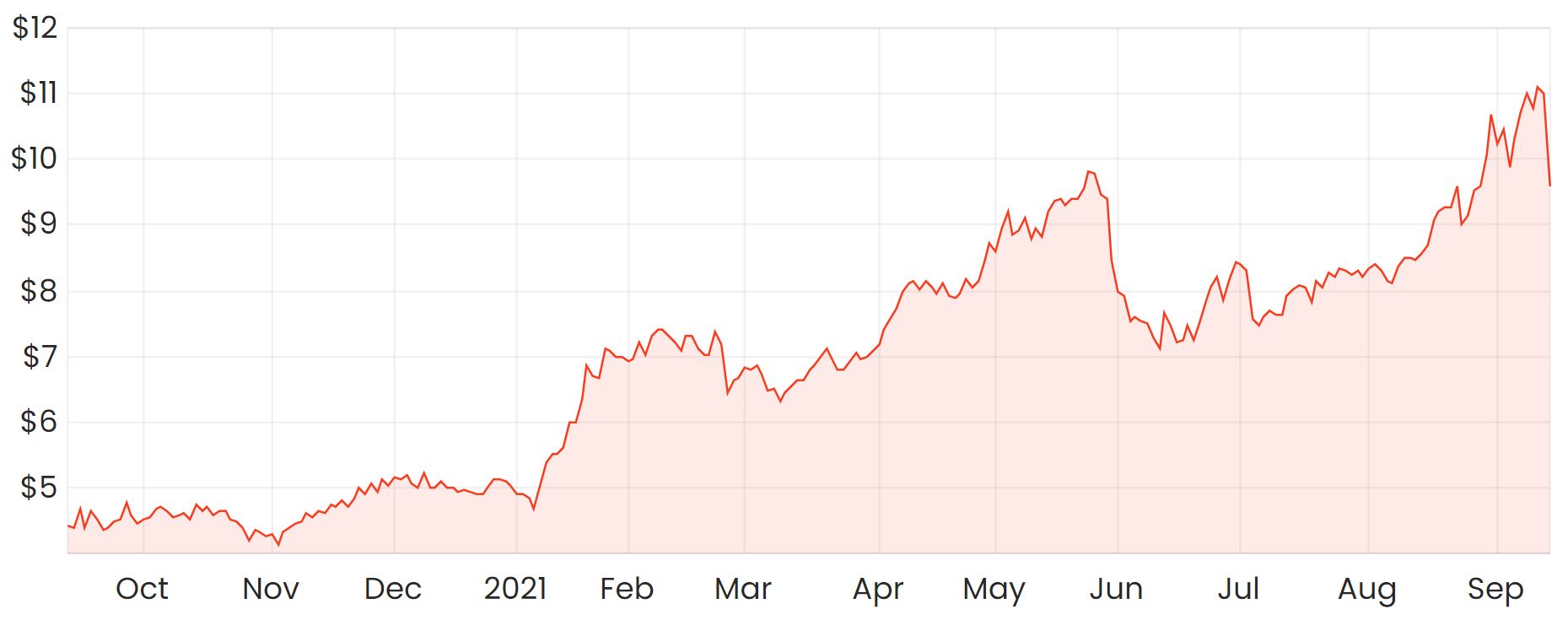Shares in Australian Ethical Investment Limited (ASX: AEF) finished the day 12.82% lower today despite no news coming out of the company.
Considering AEF’s shares have returned a huge 120% over the past year, it could be likely that some investors have been taking some profits after its stellar run.
AEF share price

FY21 results recap
For a full breakdown of Australian Ethical’s results, click here to read my colleague, Jaz Harrison’s article: Australian Ethical (ASX: AEF) share price rises on FY21 returns.
Here’s a quick refresher.
Funds under management (FUM) grew 50% to just over $6 billion during FY21. It recorded $1.03 billion in fund inflows and a market movement of $0.99 billion.
Operating revenue came in at $58.7 million, up 18% on the previous year.
Underlying profit after tax was up 19% to $11.1 million and a fully franked final dividend of 5 cents was declared.
Valuation
With shares on a Price/Earnings (P/E) multiple of over 90, Australian Ethical’s valuation might be worth taking a look at. Here’s just one way I try to get a rough sense of value.
It’s currently making $58 million in operating revenue off $6 billion FUM, a margin of around .96%.
The goal is to grow FUM over the medium term to between $18 billion to $30 billion. I’ll take a midpoint of $25 billion.
At the same .96% margin, it could end up with around $227 million in operating revenue with $25 billion FUM.
At its current net income margin of 20%, net income would end up around $45 million.
I’ll apply a conservative P/E of 30 to arrive at an implied market capitalisation of $1.3 billion (currently just over $1 billion).
Considerations
There are a lot of assumptions built into rough mental models such as this, so take it with a grain of salt. The biggest assumption is that management can successfully execute and grow its FUM.
However, if it does, net income margins could expand and/or the market could assign a higher P/E ratio to its shares, meaning there could be further upside potential from my own estimation.
I think the future growth story might not be entirely priced into its current valuation.
To get a clearer picture of Australian Ethical’s valuation, a discounted cash flow analysis could be helpful.
If you’re looking to learn how to do your own ASX company valuations, take our free share valuation course, which takes you through 6 common share valuation techniques, step by step.
Or try our Beginner Shares Course if you’re just starting out. Both are free.










